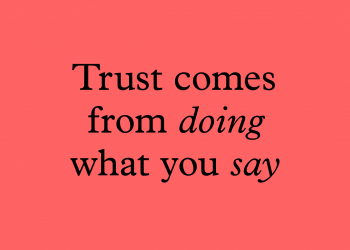Why the Commercial Side of a Relationship With a Companion Is Crucial

Most men want to spend their finer moments with intelligent, smart, sophisticated women with perfect bodies, flawless skin, immaculate presentation, and no faults. But they wince at the prospect of paying for the privilege. They argue that the commercial side of the relationship makes them feel uncomfortable. Well, most men don’t know what they want until someone shows them. This article will show you why the commercial side of your relationship with a companion, courtesan, or mistress is crucial.
It is crucial for 3 reasons:
The commercial side will be there one way or another
The money that you pay for a companion’s time is exactly the same as the money you pay a prostitute for sex or a salesperson for a house, car, or milk. Money is energy. Exchanging money for something that you want = exchanging positive energy. The act of paying shows gratitude, appreciation, that you value what or who you’re paying for. You’re supporting the product, service, or person to stay in business. Thus you give yourself more of what you want and make your world a better place.
When you pay for a product or service, you support the business in evolving and improving. When you pay a person (such as a companion, courtesan, or mistress), you help the person to pay for her food, shelter, clothes, traveling – the basics of life so that she can contribute value to your life. It’s the same as giving money to charity. The only difference is that if you pay a companion, courtesan, or mistress, you know exactly where your money goes, while if you “give” money to a charity, you’ll never know where your money will go.
Boundaries
The money that you pay a companion, courtesan, or mistress acts as a clear boundary of your relationship. Boundaries are necessary. Fences make good neighbours. Every world-famous coachadvises that people set clear boundaries in every professional and personal relationship. Every person needs a home – their little patch on earth. A home has walls, windows, and doors which denote clear boundaries. Why do we lock doors, windows, and pull curtains even in buildings with 24-hour security? Because we want to fortify our boundaries. We live in apartments because we want to be apart… Many men who wish to spend their finer moments with intelligent, smart, sophisticated women with perfect bodies, flawless skin, immaculate presentation, and no faults have wives or partners. And so are many of the women. So the commercial side is critical as a boundary that clearly denotes the relationship.
Independence
If a man dates a companion or mistress, the money that he pays her resolves his conflict between maintaining independence in life and submitting to her commands. Of course, points 1 and 2 apply here too. And they also beautifully complement each other.
A different perspective on the commercial side can make all the difference
So you see? The prospect of paying a companion, courtesan, or mistress needn’t be all that intimidating if you view it from a more resourceful perspective. This also applies to other currently intimidating or pressing aspects of your life. If you’d like to make them friendlier, you can do it with me.

You can play with my boobs & Ass.love D SQUIRT Extreme Doggy 69 BJ ANAL My Top service(Sex with condom and With Out Condom What you like) Handjob Best Blowjob Hand Release Specialy Fuck your ow...
Read more

Gorgeous Rosalyn is one of our beautiful brunette escorts in London, who's come all the way from Eastern Europe for your delight. In her early to mid twenties, this stunning young woman is 5 fe...
Read more

A Diamante is a rare, glittering jewel which is associated with the finer things in life. A Diamante jewel exudes elegance and expense, so it’s only fitting that this Lithuanian b...
Read more





















































